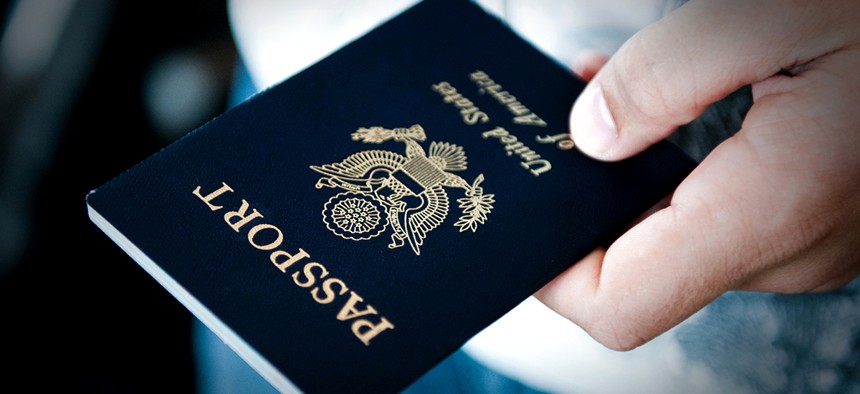How the State Department Prioritized Passport Customers

infinity21/Shutterstock.com
During peak passport processing, the agency is doing more with fewer employees.
The federal government is finally realizing what the citizens who interact with it have long understood: its customer service usually stinks.
Yet even before the Trump White House signaled improving federal customer experience a worthy cause, pockets within government were already blending concepts phrases like “customer-centric” and “journey mapping” with their missions.
Nowhere in government has this shift been more pronounced than at the State Department’s Bureau of Consular Affairs. For millions of people, the bureau is the public face of the State Department, providing consular services worldwide and issuing millions of U.S. passports each year. If you’re an American citizen and you want to travel abroad, you’ll be—or likely already are—a customer of the Bureau of Consular Affairs.
» Get the best federal technology news and ideas delivered right to your inbox. Sign up here.
The bureau handled an all-time record 18.7 million passport applications last year, and demand for its services will be higher in 2017 with more than 20 million applications expected. Yet under the weight of increased demand, a hiring freeze and continued rigor in security vetting, the Bureau of Consular Affairs actually jumped 10 points in Forrester’s Customer Experience Index last year.
That’s the private-sector equivalent of moving from a disliked airline carrier or telecommunications company to an average retail bank or credit card provider.
At a recent event hosted by the Partnership for Public Service, Deputy Assistant Secretary of State for Passport Services Brenda Sprague shed light on how the bureau earned the public’s good graces in what ought to be its most trying time.
Learn from Past Mistakes
Sprague called the bureau’s failings in the late 2000s—the backlog created after 18 million Americans sought passports and a Government Accountability Office audit of the bureau’s passport vetting—her “worst experiences.” The GAO “sting” in which the Congressional watchdog falsified documents the Passport Services office did not catch was particularly “humiliating,” Sprague said. After it, the office reworked its vetting processes.
“In 2007, we didn’t have a very happy experience. [Passports were] listed as one of the great failings of government,” Sprague said. “This year, we’re doing 20 million and nobody even realizes there are 20 million passports being issued.
“The ability to learn what went wrong, and the ability to fix it,” added Sprague, are keys to any customer-focused organization.
The Employee Experience Matters
The customer service equivalent to the expression “happy wife, happy life” is surely “happy employees, happy customers.”
One of the ways Sprague and her leadership team endeavor to keep employees happy is by allowing them a safe way to express their feedback and ideas. She travels across the country to the bureau’s hubs and meets with individual specialists regularly.
“Vegas rules apply,” Sprague said, noting employees are allowed to say whatever they want without fear of repercussion.
That outlet is one way the bureau strives to improve morale. The high-demand gear-up is perhaps the most stressful time for employees across 29 nationwide offices, who this year are required to work 20 hours of overtime each month. The overtime burden can take a toll on employees, and many aren’t happy about mandatory overtime, as sister publication Government Executive recently reported.
“We’ve worked hard to balance that, but our first obligation is to the American public,” Sprague said, adding “the hiring freeze was not the best news we received.”
With steady attrition rates and no way to hire new employees, current employees have to shoulder the additional burden.
The bureau has undertaken resiliency efforts to mitigate some of that burden, including more casual dress days, and Passport Pete, a stuffed porcupine mascot that visits regional offices for photo opportunities. The bureau also works to “provide employees outlets for explaining dissatisfaction,” ensuring that employee voices are heard.
Small gestures can carry big weight, Sprague said, which is why the bureau also circulates thank-you letters and feel-good stories via email.
And good public service can be rewarded.
The Bureau of Consular Affairs began to factor customer service into employee performance reviews, a top-down sign to front-line employees that customer experience is key.
Thus far, the bureau has met increased public demand with fewer resources while improving its customer service. If the bureau can keep up the pace, it might be the best agency poster child for the administration’s “do more with less” mantra.






